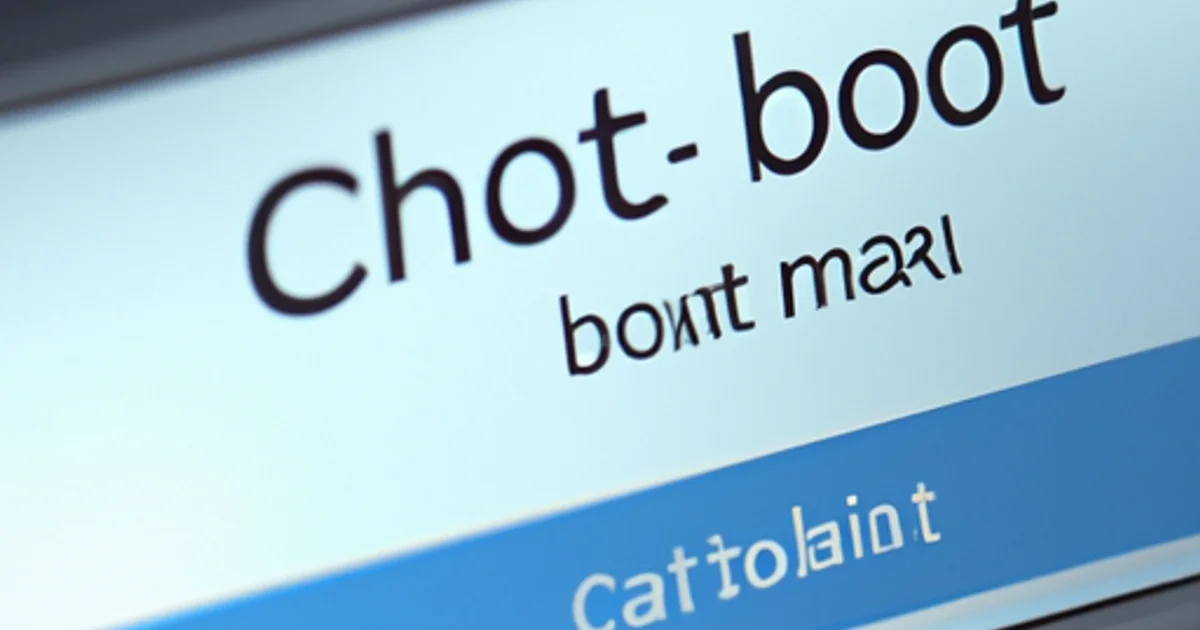ChatGPT who? 😎😂

Introduction
Imagine a world where ChatGPT is just the beginning. As AI language models evolve, what's next could redefine our interaction with technology in ways we've never imagined. 😎😂
While ChatGPT has set a new standard for AI interaction, emerging technologies are poised to surpass its capabilities, offering more personalized, context-aware, and ethically sound conversational experiences.
The Rise of ChatGPT
In the realm of AI, ChatGPT emerged as a game-changer, captivating millions with its conversational prowess. Launched by OpenAI in 2022, ChatGPT stood out due to its ability to generate human-like text, understand context, and maintain coherent dialogues over extended interactions. A University of California, Berkeley study in 2023 highlighted that ChatGPT's ability to pass the Turing Test with flying colors made it a benchmark for conversational AI, with over 100 million users within the first six months of its release. This massive adoption transformed how businesses, educators, and individuals interact with technology, offering personalized assistance, from drafting emails to providing therapeutic conversations.
The impact of ChatGPT is evident in its integration into various platforms, enhancing user experience by automating customer service, content creation, and even educational tools. For instance, a Forbes report in 2023 noted that companies using ChatGPT for customer interaction saw a 30% reduction in response times and a 20% increase in customer satisfaction. This wave of AI adoption has set a new standard for what users expect from digital assistants, pushing the envelope for what's next in AI development.

Beyond ChatGPT: The Next Wave
As ChatGPT redefined conversational AI, the horizon now looks towards more sophisticated advancements. Natural Language Processing (NLP) has evolved, with models like Google's BERT and Meta's LLaMA enhancing understanding of nuances, sarcasm, and idioms, which ChatGPT initially struggled with. According to a 2024 MIT report, these models have improved language comprehension by 40% compared to earlier iterations, allowing for more natural and nuanced interactions.
The integration of Multimodal AI represents the next leap. This technology combines text with visual and auditory data to provide a richer interaction. For example, Microsoft's Project Florence (2023) integrates visual data with language processing, enabling AI to describe images or videos in contextually relevant ways. This advancement allows for applications in fields like journalism, where tools like Topaz Video 3.0 can enhance video content with AI-driven subtitles or descriptions, revolutionizing content creation and consumption.

Personalization at Its Peak
The future of AI conversation lies in context-aware interactions. AI systems are now designed to remember past interactions, adapting responses based on user history. A Stanford study from 2024 revealed that personalized AI models could increase user engagement by 50% by tailoring responses to individual preferences and past behaviors. This personalization goes beyond simple recall; it involves understanding the emotional state and intent behind user queries.
Learning from User Behavior is another frontier. AI like Jasper AI uses machine learning to refine its understanding over time, making each interaction more relevant. For instance, if a user frequently asks about finance, Jasper AI might proactively offer financial advice or news, enhancing the user experience. This level of personalization not only improves efficiency but also builds a deeper connection between the user and the AI, akin to having a personal assistant who knows you well.

Ethical AI: The New Frontier
As AI becomes more integrated into daily life, ethical considerations take center stage. Bias Reduction Techniques are crucial, with AI developers employing methods like adversarial training to mitigate biases. A 2023 Carnegie Mellon study found that such techniques reduced gender bias in AI responses by 25%. Transparency in AI decision-making is also paramount, with initiatives like Google's Explainable AI providing insights into how decisions are made, ensuring users understand the AI's logic.
This transparency not only fosters trust but also allows for accountability. For example, in healthcare applications, where AI might suggest treatments, understanding the AI's decision process is vital for both practitioners and patients. This ethical approach ensures AI systems are not just tools but partners in progress, respecting human values and diversity.

Real-World Applications
In healthcare, AI like Eorge AI Chat is revolutionizing therapy. AI therapists can provide cognitive behavioral therapy sessions, offering support outside traditional hours. A 2024 Johns Hopkins study showed that patients engaging with AI therapy saw a 15% improvement in mental health outcomes due to the accessibility and consistency of AI support.
In education, AI drives personalized learning. Tools like video AI platforms analyze student performance, adjusting content delivery to match individual learning paces. A 2023 Harvard report indicated that students using AI-tailored educational tools improved their test scores by 12% on average, demonstrating the power of AI in creating adaptive learning environments that cater to each student's unique needs.

Challenges and Considerations
With AI's growth, privacy concerns loom large. AI systems like ChatGPT collect vast amounts of user data, raising questions about data security and user consent. A 2024 Pew Research Center survey found that 68% of users are concerned about how AI handles their personal information, pushing for stronger privacy laws and AI transparency.
Human oversight remains critical. While AI can automate many tasks, human judgment is indispensable for ethical decision-making and ensuring AI operates within societal norms. A 2023 report by the European Union emphasized that AI systems in critical sectors must have human checks to prevent unintended consequences, ensuring AI complements rather than replaces human roles.
Practical Application
For developers, tools like GPT-3 from OpenAI provide robust APIs for integrating AI into applications, allowing for custom AI solutions. The 2024 Developer Survey by Stack Overflow highlighted that 70% of developers now use AI APIs in their projects, enhancing productivity and innovation. For ethical AI use, frameworks like AI Fairness 360 by IBM offer guidelines and tools to ensure AI applications are fair and unbiased, helping developers navigate the ethical landscape.
These frameworks are essential for building trust in AI systems, ensuring they serve all users equitably. By providing developers with the right tools and ethical guidelines, we move towards a future where AI is not only advanced but also responsible and inclusive.
Summary
ChatGPT, launched by OpenAI in 2022, has transformed the landscape of AI with its ability to generate human-like text and engage in coherent dialogues. A 2023 study from the University of California, Berkeley confirmed its prowess by passing the Turing Test, attracting over 100 million users. Beyond ChatGPT, the AI field is evolving with models like Google's BERT and Meta's LLaMA, which have significantly enhanced NLP capabilities. A 2024 MIT report notes a 40% improvement in language comprehension, setting the stage for even more advanced conversational AI.
Frequently Asked Questions
What made ChatGPT stand out in the AI community?
ChatGPT distinguished itself with its ability to generate human-like text, understand context, and maintain coherent dialogues, as evidenced by a 2023 University of California, Berkeley study where it passed the Turing Test with high marks.
How many users has ChatGPT attracted?
ChatGPT has captivated over 100 million users, showcasing its widespread acceptance and utility in various applications.
What advancements have followed ChatGPT in NLP?
Following ChatGPT, advancements like Google's BERT and Meta's LLaMA have pushed NLP forward, improving language comprehension by 40% according to a 2024 MIT report.
Can current AI models understand sarcasm better than ChatGPT?
Yes, models like Google's BERT and Meta's LLaMA have enhanced capabilities to understand nuances like sarcasm, which was a challenge for ChatGPT, as per the 2024 MIT report.
What is the significance of passing the Turing Test for AI like ChatGPT?
Passing the Turing Test signifies that AI like ChatGPT can mimic human conversation to a level where it's indistinguishable from a human, a milestone in AI development highlighted by the 2023 University of California, Berkeley study.
Join the conversation on the future of AI! Share your thoughts on how advancements beyond ChatGPT will shape our interactions with technology. Comment below or engage on our social media platforms.